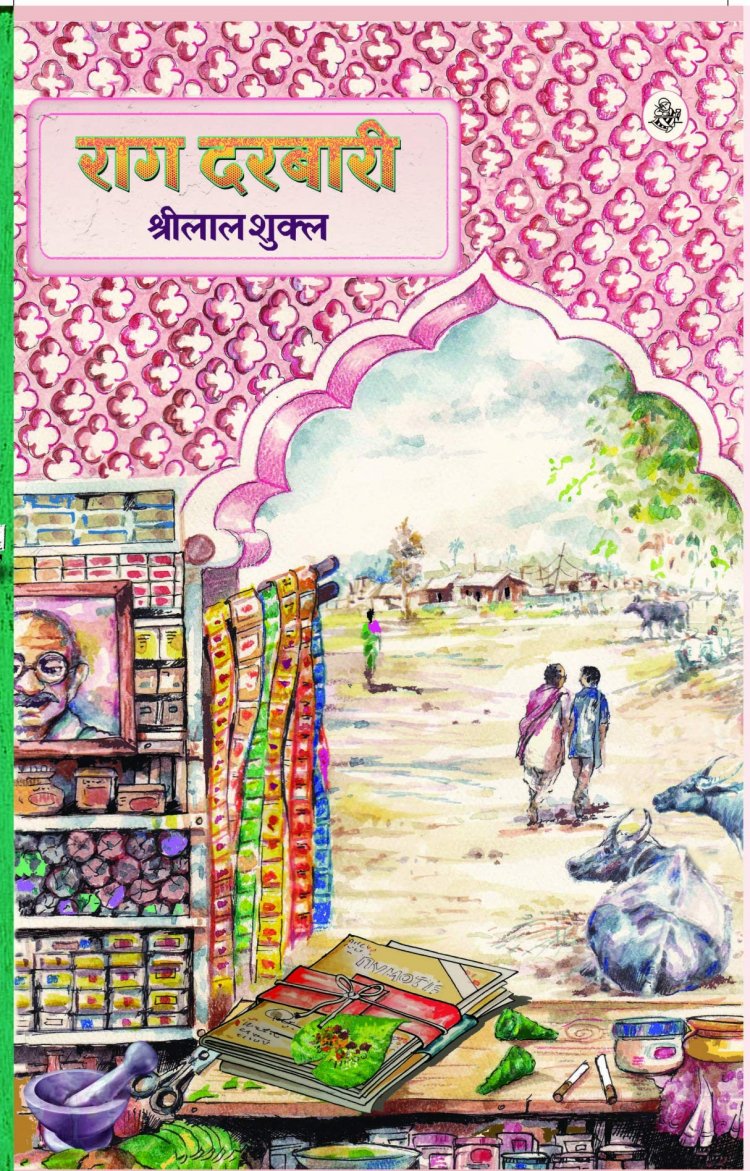Raag Darbari

Rating: 4.4/5
Author: Sri Lal Sukla
Publisher: Penguin Books Ltd.
Publishing Date: 1968
Language: Hindi
Genre: Satire/Novel
ISBN-10: 9780143418894
ISBN-13: 978-0143418894
ASIN: 0143418890
Format: Paperback
Pages: 400
Cost: Rs. 195 (Paperback)
Plot:
The novel is narrated from the point of view of Ranganath, a research student in history who comes to live with his uncle in a village named Shivpalgani in Uttar Pradesh for a few months. He learns how his uncle uses all the village institutions - the village school, the village panchayat (a local elected body), the local government offices for his political purpose. The conduct of his uncle and the petty village politicians is in stark contrast to the ideals that Ranganath has learned during his university education.
Things take a turn for Ranganath’s uncle when some people try to bring him down from his influential position. This leads to a surprising turn of events until the end.
Review:
Raag Darbari is a satirical novel that highlights the failing values of the society in post-Independence India. It shows the false values of certain intellectuals and exposes the powerful but corrupt tie-ins between criminals, businessmen, police, and politicians.
Raag Darbari tells us that trust in political authorities can never be concrete and non-relative. Studies and surveys have shown us that trust in political parties has decreased significantly over the years. Money and Power manipulate the composition of politics in any nation. Institutions of political participation and representation at the local level- the gram panchayats and the Nagar Palika enjoy unrelenting and higher levels of trust than the parliament.
Gillian Wright who translated the book in English in his introduction wrote:
“Politics and government are the two main themes of the novel. Uttar Pradesh is India's most politically dominant state and it's often said that politics is the state's main industry. Shukla describes politics at the grassroots, but much of the factionalism, nepotism, and behind-the-scenes manipulation he portrays is familiar to anyone who follows events through the national press. UP's highly developed bureaucracy, the author's other main target, is satirised for its irrelevance to the common man, inefficiency, and close connections with politicians”.
Sukla’s satirical treatment almost allows humour to seep in this political setting. He uses ‘satire’ effectively to express his views. For example:
“For a change of heart, flamboyance is very necessary and for that one needs to show off his/her knowledge of English.”
Raag Darbari’s unfiltered comments destroys each stereotype that has defined Indian villages and rural areas. While the book is constantly marrying the re-occurring stereotypes and altered realities together, it also shows the vulnerability of human beings.
Milestones of the Book:
Sri Lal Sukla was awarded the Sahitya Akademi Award, the highest Indian literary award, in 1969 for this novel.
About the Author:
Sri Lal Sukla (31st December 1925- 28th October 2011) was considered a noted litterateur for writing in contemporary fiction of Lucknow district. He passed his graduation from the University of Allahabad in 1947. Started job in 1949 from State Civil Service and retired from Indian Administrative Service in 1983. His methodical writing begins in 1954. His first published novel was 'Sooni Ghaati Ka Suraj' (1957) and the first published satire is 'Angad Ka Paaw' (1958). He was awarded the Sahitya Akademi Award for the novel 'Raag Darbari' (1968), which exposed the rural life in post-independence India.
Through the course of his literary career, Shukla wrote more than 25 books, which have been translated to English and 15 native languages. For his immense contribution towards Indian literature, Shukla was presented with the Padma Bhushan in 2008. He was also presented with the Vyas Samman Award and the Jnanpith Award. Sukla also served on the Advisory Board of the Sahitya Akademi.















































